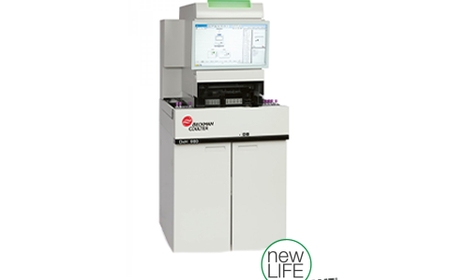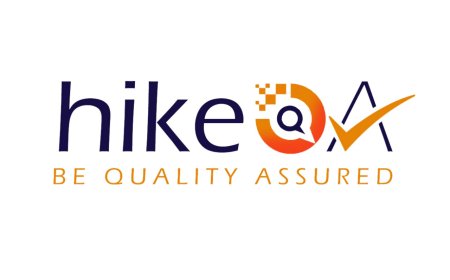Harnessing the Power of GA4 Funnel Analysis for Data-Driven Marketing
Thinking of using GA4 data to improve your digital marketing strategy? Read the blog to get insights on GA4 implementation and multi-channel attribution.

The digital is a complex world. Here, performance parameters differ from those of the physical world. While the core idea of generating sales through conversions remains the same, the digital landscape demands accurate, real-time user behavior insights to:
- Design marketing strategies
- Increase conversions and sales
Here, data is the king, and data analysis forms the foundation of a well-designed, result-oriented digital marketing strategy. For over a decade, Universal Analytics has been a staple for tracking and analyzing website traffic. But changing customer preferences make change inevitable. The resultGoogle Analytics 4 (GA4). This was more powerful, more accurate and more aligned with the needs of data-driven marketing.
In this blog, well explore what makes GA4 such a game-changer for your business and why adopting GA4 is transforming data collection and interpretation to build user-centric digital strategies.
The Transition to GA4 Implementation
If you think Google Analytics 4 is an updated version of the older Google Analytics, you could not be more wrong. GA4 has completely revolutionized how user behavior is tracked and analyzed. Its more adaptable, privacy-conscious, and future-proof, empowering you with:
- A more comprehensive analysis of your customers
- Deeper insights into their integrations and journey across the website
Consequently, the digital marketing landscape is also shape-shifting with:
- Stricter user privacy regulations
- Complex customer journeys
- Increased adoption of multichannel strategies
These factors were instrumental in driving the need for advanced marketing analytics tools that offered a holistic view of user behavior by implementing machine learning capabilities and granular tracking.
The change was inevitable. Still, the end of Universal Analytics (UA) in 2023 was a pivotal moment. What was once an important analytics tool had lost its ability to track modern user interactions. Its session-based tracking model only looked at how users interact with a site in discrete sessions. In times of mobile-first apps, multi-device usage, and complex customer journeys, it was inadequate and inaccurate.
Key Differences of GA4 Funnel Analysis with UA
UA is obsolete, yet to harness GA4s full potential, you must understand how it fundamentally differs from UA or Universal Analytics. As you transition, knowledge of these differences will help you understand and implement the key advancements in GA4.
Event-Based Tracking vs. Session-Based Tracking
The session-based tracking of Universal Analytics focused only on user sessions within a predefined period. GA4 introduced the event-based model. So, how did this model differ, and what advantages does it offer? Here, a page view, button click, or video watch is construed as an event.
Cross-Platform Tracking
GA4 can track users across websites and mobile apps within a single property, while in UA, they were separately tracked. So it was difficult to understand cross-platform user journeys. GA4 brought this data together, offering a unified view of user behavior across all digital touchpoints.
Enhanced Reporting and Customization
The rigid, pre-configured reports of Universal Analytics were not very conducive to creating user-centric strategies. GA4 allows users to customize their reports and track exactly what matters to them. The resultyou can build your reports based on the metrics you want to track, making it easy to create strategies aligned with your business goals.
Improved User-Centric Data
UA focused on pageviews and sessions. GA4 is user-centric. It offers robust insights into how individual users interact with your website over time. You can also track user journeys across sessions, enabling better audience segmentation and personalizing your marketing efforts.
Key Features of GA4 Funnel Analysis
Google Analytics 4 comes packed with new data tracking and reporting features. Lets explore them so you can have your partnering digital marketing agency implement them in your best interest.
Advanced Machine Learning and Predictive Analytics
GA4 leverages Googles machine learning models to provide predictive insights for accurate, smarter, data-driven marketing strategies. Critical GA4 features include:
- Predictive Metrics like purchase and churn probability, and revenue prediction. Using them, businesses can understand potential future outcomes based on historical user behavior and tailor their strategies accordingly.
- Automated Insights about user behavior patterns and trends, alerting you to significant data changes. These GA4 insights empower you to act proactively and quickly to capitalize on opportunities and prevent issues from impacting your digital business.
Cross-Device and Cross-Platform Tracking
GA4 offers seamless cross-platform tracking, allowing businesses to track user behavior across multiple devices and platforms to:
- Get an overview of the unified customer journey and optimize your marketing strategies for each stage, from awareness to purchase
- Improve attribution, allowing businesses to understand better which marketing efforts are driving conversions, and on which platform or device the conversions are happening.
Event-Based Tracking
The event-based model of GA4 offers businesses more flexibility and control over what data to track. Such customized tracking results in enhanced user insights, which is essential to ensure complete focus on the metrics that matter most to your business-specific goals.
Improved Data Retention and User-Centric Data
Data retention and user privacy have become increasingly stringent recently, especially with GDPR, HIPAA, and other privacy regulations. GA4 follows a privacy-first approach. This is one of the biggest benefits of GA4 for digital marketers. It allows you to meet regulatory requirements, offer more control over data collectio,n and retain valuable user data for a longer period for analysis.
Integration with BigQuery
This, free for GA4 users, is Googles fully managed data warehouse platform. You can analyze massive datasets with ease. This is particularly beneficial if your business has complex data needs or your website witnesses high traffic. Real-time data processing is another advantage of BigQuery integration. You can leverage your in-house team or partner with a professional digital marketing agency to process customer behavior in real time and make quick decisions to optimize your marketing strategies.
How GA4 Enhances Data-driven Marketing Strategies?
Google Analytics 4 is critical to your overall digital marketing strategy. Its advanced features and machine learning capabilities provide insights that elevate your marketing strategy. Marketing benefits of Google Analytics 4 include:
- Improved Customer Segmentation by going beyond demographics, segmenting users based on their behaviors, preferences, and interactions
- Deeper insights for personalization by tracking user actions to improve UX and enable dynamic retargetting
- Integrated Google Ads for smarter advertising, better campaign tracking and audience targeting using its advanced multi-channel attribution models
- Automated and predictive metrics that automate marketing decisions and react faster to emerging trends
All these benefits work collectively to ensuring your competitiveness in a hypercompetitive digital landscape. By changing how you track, analyze and act on user data, key advancements in GA4 make it an essential tool for digital marketing.
Conclusion
The message is clear. If you want to thrive online, you must harness GA4 insights for a holistic view of your users journey across your website. The resultyou will no longer struggle with siloed data; instead, you will have more granular, meaningful information to make proactive, data-driven decisions. This shift from reactive to proactive marketing is a huge advantage, and you will ultimately benefit and maximize your ROI by improving customer retention and driving conversions.
GA4 is leading the future of data-driven marketing. So make the switch today and unlock the full potential of your business.









































